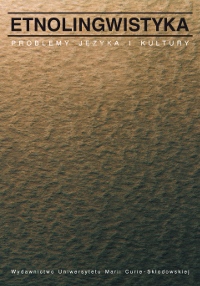WSPÓŁCZESNE NEKROLOGI POŻEGNALNE
CONTEMPORARY ‘FAREWELL’ OBITUARIES
Author(s): Jacek KolbuszewskiSubject(s): Anthropology, Language and Literature Studies, Theoretical Linguistics, Applied Linguistics
Published by: Wydawnictwo Naukowe Uniwersytetu Marii Curie-Sklodowskiej
Keywords: obituaries; ‘farewell obituary’; lexis; eulogy; funeral culture
Summary/Abstract: The function of obituaries published in Polish press in recent years (1994-1997) has been shifting from informative to that of a farewell. A new variety of an obituary, a ‘farewell obituary’, has come into being. Its typical features are a heavy emotional load and a more personal and private character. They are achieved through the use of vocabulary indicative of the feelings of the mourners (‘with sorrow’, ‘with profound grief’, ‘truly in pain’), poetic names of death (‘departure’), or diminutives with traditional formulas (‘late X’). The addressee of such a farewell obituary is often the deceased him- or herself, addressed by his or her first name in the vocative (‘Farewell, dear Jude’) without the full onomasiological identification of the person. This is paralleled by an equally enigmatic way of specifying the author of the obituary: ‘Darling, we bid you farewell, Grace and Stan’. Such a hermetical way of coding published texts results in the latter having two differently conceived addressees: the direct one, i.e. the deceased, and the virtual one, i.e. the readers. The new convention is indicative of a desire to overcome the drama of separation by suggesting a possibility of a second encounter with the person in some vague future. Therefore it may be seen as a peculiar type of substitute for funeral speeches, a phenomenon well known in Polish funeral tradition.
Journal: Etnolingwistyka. Problemy Języka I Kultury
- Issue Year: 9/1998
- Issue No: 10
- Page Range: 193-210
- Page Count: 18
- Language: Polish

